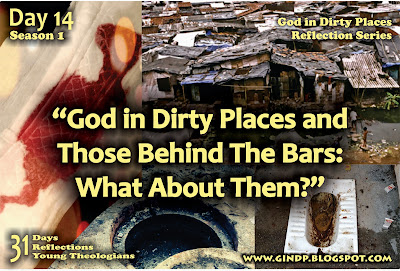Sexual abuse is a criminal activity which, until
recent times, has been covered by a society which did not have the courage to
face it. The implications of widespread abuse are too unpleasant for most
people to contemplate. Consequently, the whole area of child sexual abuse has
been surrounded by a culture of silence and denial in the community, including
the church. However, the society is hearing about child sexual abuse since from
the past few years because many women are beginning to break the silence and
tell about their experiences.
Girls
and Sexual Abuse
Baker and Duncan suggest child sexual abuse as, “A
child (anyone under sixteen years) is sexually abused when another person, who
is sexually mature, involves the child in any activity which the other person
expects to lead to their sexual arousal.”[i] It
is a deliberate and planned misuse of power over children. It commonly involves
or coexists with emotional abuse, because it violates the child’s deepest
feelings and emotional development.[ii] Women
are vulnerable to sexual abuse because of the power of men. Girls are even
vulnerable to adult sexual abuse of power because they lack understanding and
resources for self-protection.[iii] Even
more disturbing is that, according to some study and even from the testimony I
have come across so far, most sexual abuse perpetrated within families and by
persons who are trusted by the child. So, in this time of pandemic when there
is a nationwide lockdown, when help could not reach easily, I am terrified that
many girls are in a vulnerable and desperate situation.
The
Reality
I have encountered with some women who are sexually
abuse as a child. Most of them told that it had been happened over many years
and they did not have the courage to tell anyone fearing that they would be
looked down. “I am dirty, I am different, I am damaged- and no one will believe
me,” was how they usually felt at that time. They lived with pain and humiliation, fear and
distrust. They usually wonder whether there is a loving God out there for them.
God
in Dirty Place: Theology and Abuse
The central image of Christ on the cross as the saviour
of the world communicates the message of God who puts Godself in a dirty place
and eventually becomes dirty. However, the point of the cross was not the
suffering but the resurrection. The point was to transform suffering, not
remain in it. We are to transform the suffering around us. We are supposed to
turn a theology of suffering into a theology of empowerment and life.[iv] It
is important to remind ourselves that God’s loving power is vulnerable to evil
but not defeated by it. The God in dirty place is also the God in victory.
It is, therefore, our duty to reject the dehumanizing
effects of sexual abuse and to project life with courage, hope, and love for
God, self, and others. Most importantly, we should not only be familiar with
the abuse of girls as a grave issue, but also acknowledge our role in
addressing this problem that threatens the lives of many women and families in our
society. We need to open our eyes and be sensitive toward the reality of child
sexual abuse.
Prayer
Compassionate God, who loves and cares for all of your
children, especially the smallest and most vulnerable, we entrust to you the
lives of the many children who have been sexually abused, and whose trust and
innocence have been destroyed. Help us to hear their pain and even the silent
cry of victims and survivors and to take responsibility for so many broken
lives. Amen
**********
Author:
Dikteii Chawngthu
About the Author: Dikteii hails from Mizoram, India. She earned her Bachelor of Divinity from the Academy of Integrated Christian Studies (AICS, Aizawl) in 2014 and Master of Theology in the department of Christian Ministry from the United Theological College, Bangalore in 2017. She is currently pursuing her Doctoral Research in Pastoral Care and Counselling under SATHRI, Serampore.
References:
[i] Baker, A. and S. Duncan. “Child Sexual Abuse: A Study of Prevalence in Great Britain.” In Child Abuse and Neglect: The Family and the Community. Edited by R. Heller and Kempe. Cambridge, MA: Ballinger, 1976.
[ii] Cashman, Hilary. Christianity and Child Sexual Abuse. Great Britain: Society for Promoting Christian Knowledge, 1993.
[iii] Poling,
James Newton. The Abuse of Power: A Theological
Problem. Nashville: Abingdon Press, 1991.
[iv]
Nienhuis, Nancy
Eileen. “Theological Reflection on Violence and Abuse.” The Journal of Pastoral Care
& Counseling 59/1-2 (Spring-Summer,
2005): 120-134.






